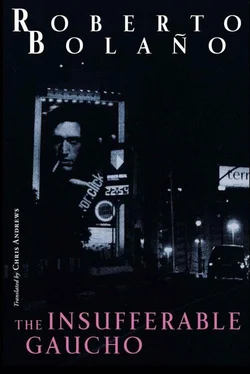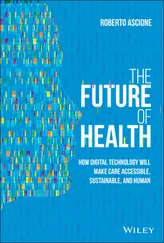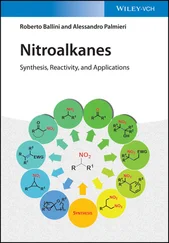You’ve got no idea, he said. Do you think the crimes will stop if you arrest me? Do you think your bosses will give me a fair trial? They’ll probably tear me to pieces in secret and dump my remains where predators will take them. You’re a damn predator, I said. I’m a free rat, he replied impudently. I’m at home in fear and I know perfectly well where our people are headed. His words were so presumptuous I chose not to dignify them with an answer. Instead I said, You’re young. Maybe there’s a way to cure you. We don’t kill our own kind. And who’s going to cure you, Pepe? he asked. And your bosses? Where are the doctors to cure them? Lie face down, I said. Hector stared at me; I dropped the cord. Our bodies locked in a fight to the death.
After ten eternal-seeming minutes, he lay beside me, lifeless, his neck crushed by a bite. As for me, my back was covered with wounds, my snout was torn open and I couldn’t see anything out of my left eye. I took his body back to the station. The few rats I encountered no doubt supposed that Hector had been the victim of a predator. I left his body in the morgue and went to find the coroner. It’s all solved now, were the first words I could articulate. Then I slumped to the ground and waited. The coroner examined my wounds and sewed up my snout and my eyelid. As he was attending to me, he asked how it had happened. I found the killer, I said. I stopped him; we fought. The coroner said he had to call the commissioner. He clicked his tongue and a thin, sleepy-looking adolescent emerged from the darkness. I assumed he was a medical student. The coroner told him to go the commissioner’s place and tell him that the coroner and Pepe the Cop were waiting for him at the station. The adolescent nodded and disappeared. Then the coroner and I went to the morgue.
Hector’s body was lying there and his coat was beginning to lose its gloss. It was just another body now, one among many. While the coroner was examining it, I took a nap in a corner. I was woken by the commissioner’s voice and a couple of shoves. Get up, Pepe, said the coroner. I followed them. The commissioner and the coroner scurried down tunnels that were unfamiliar to me. I followed them, half asleep, watching their tails, with an intense burning pain in my back. Soon we came to an empty burrow. There, on a kind of throne, or maybe it was a cradle, I saw a seething shadow. The commissioner and the coroner told me to go forward.
Tell me the story, said a voice that was many voices, emerging from the darkness. At first I was terrified and shrank away, but then I realized that it was a very old queen rat — several rats, that is, whose tails had become knotted in early childhood, which rendered them unfit for work, but endowed them, instead, with the requisite wisdom to advise our people in critical situations. So I told the story from beginning to end, and tried to make my words dispassionate and objective, as if I were writing a report. When I finished, the voice that was many voices emerging from the darkness asked me if I was the nephew of Josephine the Singer. That’s correct, I said. We were born when Josephine was still alive, said the queen rat, shifting herselves laboriously. I could just make out a huge dark ball dotted with little eyes dimmed by age. The queen rat, I conjectured, was fat, and a build-up of filth had immobilized her hind paws. An anomaly, she said. It took me a while to realize that she was referring to Hector. A poison that shall not spell the end of life for us, she said: a kind of lunatic, an individualist. There’s something I don’t understand, I said. The commissioner touched me on the shoulder with his paw, as if to stop me from speaking, but the queen rat asked me to explain what it was that I didn’t understand. Why did he let the baby die of hunger, instead of ripping his throat open, as he did with the other victims? For a few seconds all I could hear from the seething shadow was a sound of sighing.
Maybe, she said after a while, he wanted to witness the process of death from beginning to end, without intervening or intervening as little as possible. And, after another interminable silence, she added: We must remember that he was insane, that we are in the realm of the monstrous — rats do not kill rats.
I hung my head and stayed there, I don’t know for how long. I might even have fallen asleep. Suddenly I felt the commissioner’s paw on my shoulder again, and heard his voice ordering me to follow him. We went back the way we had come, in silence. Just as I had feared, Hector’s body had disappeared from the morgue. I asked where it was. In the belly of some predator, I hope, said the commissioner. Then I was told what I had already guessed. It was strictly forbidden to talk about Hector with anyone. The case was closed, and the best thing for me to do was to forget about him and get on with my life and my work.
I didn’t feel like sleeping at the station that night, so I found myself a place in a burrow full of tough, grimy rats, and when I woke up I was alone. That night I dreamed that an unknown virus had infected our people. Rats are capable of killing rats. The sentence echoed in my cranial cavity until I woke. I knew that nothing would ever be the same again. I knew it was only a question of time. Our capacity to adapt to the environment, our hard-working nature, our long collective march toward a happiness that, deep down, we knew to be illusory, but which had served as a pretext, a setting, a backdrop for our daily acts of heroism, all these were condemned to disappear, which meant that we, as a people, were condemned to disappear as well.
I went back to my daily rounds; there was nothing else I could do. A police officer was killed and torn to pieces by a predator; there were several fatalities as a result of more poisoning from the outside; a number of tunnels were flooded. One night, however, I yielded to the fever that was consuming my body and returned to the dead sewers.
I’m not sure whether that sewer was one of those in which I’d found a victim, or even if I’d been there before. All dead sewers are the same, in the end. I spent a long time in there, hiding, waiting. Nothing. Only distant noises, splashes: I couldn’t say what caused them. When I returned to the station, with red eyes from my long vigil, I found some rats who swore they’d seen a pair of weasels in the tunnels nearby. There was a new police officer with them. He looked at me, waiting for some kind of sign. The weasels had cornered three rats and several young in the end of a tunnel. If we wait for backup it’ll be too late, said the new officer.
Too late for what? I asked, yawning. For the young and their guardians, he replied. It’s already too late, I thought, for everything. I also thought: When did it become too late? Was it in the time of my aunt Josephine? Or a hundred years before that? Or a thousand, three thousand years before? Weren’t we damned right from the origin of our species? The officer was watching me, waiting for a cue. He was young and he couldn’t have been on the job for more than a week. Some of the rats around us were whispering, others were pressing their ears to the walls of the tunnel; most of them, it was all they could do to stop themselves from shaking and running away. What do you suggest? I asked. We do it by the book, replied the officer, we go into the tunnel and rescue the young.
Have you ever taken on a weasel? Are you ready to be torn apart by a weasel? I asked. I know how to fight, Pepe, he replied. There was nothing much left to say, so I got up and told him to stay behind me. The tunnel was black and stank of weasel, but I know how to move in the dark. Two rats came forward as volunteers and followed us.
Alvaro Rousselot’s Journey
Читать дальше












